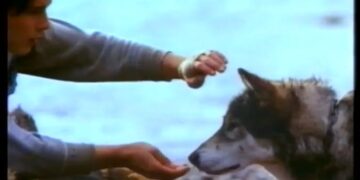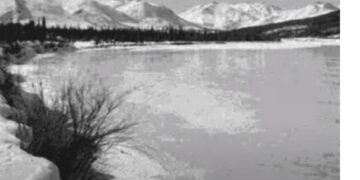A pioneer of commercial magazine fiction, Jack London was a prolific American novelist and journalist. Born in 1876 in San Francisco, California, Jack London’s bio is as captivating as his literary works. His early life was nothing short of an adventure, which later became a significant influence in his storytelling. The author of over 50 books, London was an active socialist and a vocal advocate for worker rights.
He was an ardent traveler, drawing inspiration from his experiences in Alaska during the Klondike Gold Rush and his sailing adventures in the South Pacific. This zest for adventure and exploration was reflected vividly in his writings, making his books a thrilling read. His works, like “The Call of the Wild,” “White Fang,” and “Martin Eden,” have been translated into several languages, making him an internationally recognized figure in literature.
Despite his untimely death at the age of 40, London’s literary legacy continues to thrive. His works have been adapted into numerous films and TV series, influencing generations of writers and filmmakers.
Is Jack London still alive? Exploring the longevity of his influence
No, Jack London is not physically alive, but his literary legacy continues to thrive and influence modern literature and cinema. His themes of survival, nature, and the struggle of the individual against society resonate with readers and viewers worldwide.
His works are studied in schools and universities for their literary merit and socio-political commentary. London’s influence is apparent in the works of many contemporary authors who have adopted his style of realism and adventure. His captivating storytelling continues to inspire filmmakers, with several of his books adapted into successful movies and series.
Even today, more than a century after his death, Jack London’s influence is evident in various forms of media. His timeless themes and memorable characters continue to captivate audiences, proving that his legacy is very much alive.
Unveiling the masterpieces: List and brief description of Jack London’s 5 best books
When discussing Jack London’s bio, it’s impossible to overlook his literary masterpieces. Here are five of his best books:
- The Call of the Wild (1903): This is arguably London’s most famous novel. It tells the story of a domesticated dog named Buck who is stolen and sold into service as a sled dog in Alaska. The book explores themes of survival and the inherent wildness in all living creatures.
- White Fang (1906): This companion novel to “The Call of the Wild” examines the world through the eyes of a wild wolfdog. It’s a powerful exploration of nature vs. nurture.
- Martin Eden (1909): This semi-autobiographical novel follows a working-class sailor who aspires to become a writer. It’s a critique of individualism and the socio-economic class system.
- The Sea-Wolf (1904): This adventure novel features a literary critic who survives a shipwreck and is rescued by a seal-hunting vessel. The book explores the conflict between the soft, intellectual protagonist and the brutal, Nietzschean sea captain, Wolf Larsen.
- The Iron Heel (1908): This dystopian novel presents a world in which a powerful oligarchy maintains control through a combination of social welfare programs and brutal military force.
Hidden gems and trivia about Jack London
While most are familiar with Jack London’s bio and his famous works, there are many lesser-known facts and hidden gems about the author.
London was largely self-educated. Despite having to leave school at a young age to support his family, he was a voracious reader and taught himself using the resources of the Oakland Public Library. He later credited this self-education for his success as a writer.
Another intriguing fact is that London was not only an author but also a war correspondent. He covered the Russo-Japanese War for the San Francisco Examiner in 1904, which gave him firsthand experience of combat and military life.
Moreover, London was an advocate for animal rights, which is evident in his portrayal of animals in his works. His empathy for animals stemmed from his experiences in Alaska, where he developed respect for the harsh realities of nature.
Jack London’s love life and friendships: An intimate look
Jack London’s bio also encompasses an intriguing personal life. He was married twice, first to Elizabeth Maddern, and later to Charmian Kittredge. He had two daughters with Maddern, but his relationship with Kittredge was more of a romantic partnership. Kittredge shared London’s love for travel and adventure, and she was his constant companion on his voyages.
London had a wide circle of friends and acquaintances, including socialists, writers, and adventurers. He maintained a close friendship with Anna Strunsky, a fellow writer and socialist. Their correspondence provides insight into London’s thoughts on politics, literature, and life.
Jack London: A journey from riches to rags or vice versa?
London’s journey can be described as a trip from rags to riches. Born into poverty, London had to quit school at a young age to support his family. He worked as a laborer, sailor, and even as an oyster pirate. These experiences of hardship and survival would later become the backbone of his realistic and gritty storytelling.
London’s writing career began to take off with the publication of “The Call of the Wild.” His subsequent works earned him fame and financial success. Despite his wealth, London remained politically active and was a vocal critic of capitalism. His life’s journey from poverty to wealth, and his continued engagement with social issues, added depth and authenticity to his storytelling.
Immortal words: Best quotes from Jack London’s works
Jack London’s works are filled with memorable lines that capture the essence of his themes and characters. Here are some of the best quotes from his works:
- “The proper function of man is to live, not to exist.” – The Sea-Wolf
- “Life is not always a matter of holding good cards, but sometimes, playing a poor hand well.” – Martin Eden
- “I would rather be ashes than dust!” – Credo
- “The Wild still lingered in him and the wolf in him merely slept.” – White Fang
- “He was sounding the deeps of his nature, and of the parts of his nature that were deeper than he, going back into the womb of Time.” – The Call of the Wild
The backdrop of storytelling: Main places where Jack London’s books are set
The settings of London’s books are as diverse as his life experiences. The harsh Alaskan wilderness is a recurring backdrop in many of his works, including “The Call of the Wild” and “White Fang.” These settings allow London to explore themes of survival and the primal nature of man and beast.
In contrast, “Martin Eden” is set in the urban landscape of San Francisco. This setting reflects London’s critique of the socio-economic class system and the struggle of the individual against societal expectations.
“The Sea-Wolf” takes place on the high seas, reflecting London’s sailing adventures. This setting serves as a stage for the clash between civilization and the raw, unforgiving nature of the sea.
The first and the last: Exploring Jack London’s first book and last book
London’s first book, “The Son of the Wolf,” was a collection of short stories set in the Klondike region of Canada. Published in 1900, the book introduced readers to London’s realistic portrayal of life in the wilderness.
His last book, “The Star Rover,” was published posthumously in 1915. The novel follows a prisoner who, through the use of astral projection, visits past lives and far-off galaxies. The book was a departure from London’s usual realistic style and reflected his growing interest in spiritualism.
Reading Jack London’s works in order: A comprehensive guide
For those interested in delving into the works of Jack London, it’s beneficial to read his books in chronological order. This allows the reader to understand the evolution of London’s style and themes. Starting with “The Son of the Wolf,” readers can then move on to “The Call of the Wild,” “The Sea-Wolf,” “White Fang,” “Martin Eden,” and finally “The Star Rover.”
From page to screen: The screen adaptation of Martin Eden
“Martin Eden” has been adapted into several films and TV series, the most recent being the 2019 Italian film directed by Pietro Marcello. The film transposes the setting from early 20th century San Francisco to Naples in Italy. Despite the change in setting, the film retains the novel’s themes of individualism, class struggle, and the transformative power of education.
The screen adaptation of “Martin Eden” captures the essence of London’s novel while offering a fresh interpretation. It’s a testament to the timeless appeal of London’s storytelling.
Inspirations and influences: Other artists who inspired Jack London
London’s writing was influenced by a wide range of authors and thinkers. He admired the works of Rudyard Kipling, Robert Louis Stevenson, and Herman Melville for their adventure stories. He was also influenced by Charles Darwin and Herbert Spencer, whose theories of evolution and survival of the fittest resonated with his own experiences and worldview.
Moreover, London was a follower of Friedrich Nietzsche’s philosophy. Nietzsche’s ideas about the will to power and the Ubermensch are evident in characters like Wolf Larsen from “The Sea-Wolf.”
If you loved Jack London: List and brief description of 5 other writers and books to read
If you enjoyed reading Jack London’s works, here are five other writers and books that you might like:
- Ernest Hemingway – “The Old Man and the Sea”: Hemingway’s sparse prose and themes of survival and honor resonate with London’s works.
- Robert Louis Stevenson – “Treasure Island”: Stevenson’s adventure story is filled with pirates, treasure, and daring exploits.
- Rudyard Kipling – “The Jungle Book”: Kipling’s tales of Mowgli’s adventures in the jungle explore the boundary between civilization and the wild, much like London’s works.
- Herman Melville – “Moby-Dick”: Melville’s epic tale of man’s struggle against nature echoes London’s exploration of survival and the human spirit.
- Mark Twain – “The Adventures of Huckleberry Finn”: Twain’s depiction of a young boy’s journey down the Mississippi River is a classic tale of adventure and self-discovery.
Conclusion
Jack London’s bio is a testament to his enduring influence in literature and cinema. His works, with their themes of survival, adventure, and social critique, continue to captivate readers and viewers. Whether you’re a fan of his books, interested in his life, or curious about his influence on other artists, there’s no denying London’s significant contribution to the world of storytelling.
Enjoyed what you read? Show your support and fuel our fight by treating us to a coffee or purchasing captivating books of Jack London on Amazon via this link.
The WFTS crew is fuelled by a fervent desire to safeguard the timeless allure of books, ensuring it never fades in the glare of the big screen.
We’re committed to presenting our work without the distraction of irrelevant and irksome banner ads.
Join us in this modern revolution to uphold the enduring magic of transmuting cherished books into Movies and TV shows














